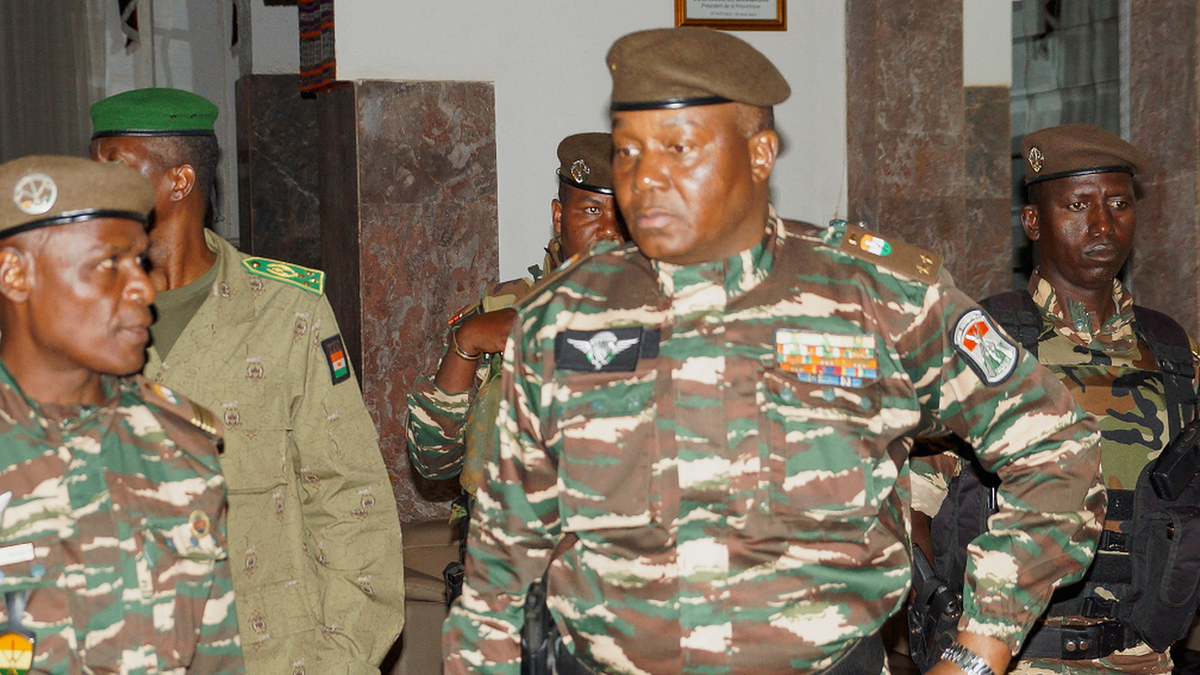Outline
of the Article:
- Introduction: The
Current Situation in Niger
- Brief overview
of the political landscape
- Mention of the
junta's agreement to a transition plan
- Understanding the
Mediation Process
- Role of
mediators in conflict resolution
- Importance of
mediation in political crises
- Key Components of the
Transition Plan
- Details on the
agreed-upon transition plan
- Its
significance for Niger's future
- Reactions and
Responses
- Reactions from
stakeholders within Niger and globally
- Analysis of
the responses to the transition plan
- Challenges Ahead
- Potential
obstacles to the successful implementation of the plan
- Discussion on
the hurdles faced by transitional governments
- The Roadmap to
Stability
- Suggestions or
insights into ensuring a stable transition
- Implications for the
Region
- Discussion on
how Niger's transition plan impacts neighboring countries
- Public Perception and
Expectations
- How the
populace views this agreement
- Expectations
from the transitional government
- International
Community's Role
- Involvement
and support from global organizations and nations
- Lessons for Future
Resolutions
- Takeaways and
lessons from this mediation for similar situations
Niger
Junta Agrees to Transition Plan - Mediator
The West African nation of Niger has found itself at a
pivotal juncture, marked by political instability and uncertainty. Recent
developments have shed light on a significant breakthrough – the junta's
agreement to a transition plan mediated by involved parties. This agreement
signals a potential shift toward stability, although the journey ahead remains
challenging.
Understanding
the Mediation Process
In times of political turmoil, mediators play a crucial
role in facilitating dialogue and finding common ground among conflicting
parties. Their involvement is instrumental in steering countries away from
chaos and toward a path of resolution. In the case of Niger, mediation emerges
as a beacon of hope amidst the prevailing tensions.
Key
Components of the Transition Plan
The agreed-upon transition plan encompasses pivotal
elements aimed at charting a new course for Niger. Detailing the specifics of
this plan and its intended impact on the nation's future, it embodies the
aspirations of a populace seeking stability and progress.
Reactions
and Responses
Responses to this transitional agreement have varied
significantly. While some stakeholders within Niger and globally have expressed
optimism, others remain cautiously observant. Analyzing these reactions
provides insights into the diverse perspectives surrounding this crucial
development.
Challenges
Ahead
However promising the transition plan may be, challenges
loom large on the horizon. From internal discord to external pressures, the
road to implementation is fraught with obstacles. Understanding these
challenges is pivotal in devising strategies for their effective navigation.
The
Roadmap to Stability
Navigating the complexities of a transition requires a
comprehensive roadmap. Suggestions and insights into ensuring a stable
transition emerge as critical components in steering Niger toward a more secure
and prosperous future.
Implications
for the Region
Niger's internal dynamics hold implications not only for
its citizens but also for neighboring countries. Assessing how this transition
plan influences regional stability provides a broader perspective on its
significance.
Public
Perception and Expectations
Public sentiment shapes the trajectory of any transition.
The population's perception and their expectations from the transitional
government play a significant role in shaping the success of this agreement.
International
Community's Role
The involvement of global organizations and nations is
pivotal in supporting Niger's transition. Assessing the role and assistance
provided by the international community sheds light on the collective effort to
stabilize the nation.
Lessons
for Future Resolutions
Drawing lessons from this mediation process, stakeholders
can glean insights for handling similar political crises in the future.
Documenting these takeaways is essential for fostering better conflict
resolution strategies globally.
Concluding,
the junta's agreement to the transition plan stands as a watershed moment for
Niger. Its successful implementation holds the promise of a more stable and
prosperous future. However, the challenges ahead necessitate collective efforts
and unwavering commitment from all stakeholders involved.
FAQs
- What prompted the
junta to agree to the transition plan?
- How long is the
transitional period expected to last?
- What role do
mediators play in such agreements?
- Are neighboring
countries involved in supporting this transition?
- What challenges might
hinder the plan's implementation?



.png)

0 Comments